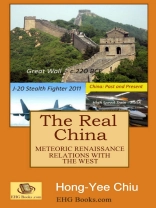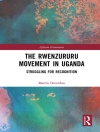China had been invaded, conquered and ruled by foreign tribes many times over since the third century. However, at the end of the day, the invaders willingly assimilated into ethnic Chinese culture and, as a result, their territories became parts of China. Chinese territory and civilization grew further. How and why?
The year was 1991 when I traveled to China and found myself dismayed by the quality of the roads near Xian, an ancient capital noted for its terracotta statues dating back to 206 BCE. As we bumped along the weather-beaten path, I sarcastically asked my guide ‘Is there a superhighway at all in China?’ The guide tossed a blank look at me, as if in shock that I would betray my Chinese heritage by speaking such an insult. A quick-witted local Chinese answered promptly for her: ‘Of course we have – in Taiwan.’
A little more than a decade later, when I returned to Xian in February of 2005, the cityscape had completely changed. This time, as I was driven into the city, skyscrapers stretched up into the sky, and new buildings dotted the streets as well as the countryside. In answer to my question so many years earlier, the airport is now connected to the famed city via a well-constructed and maintained superhighway, which directly connects to Beijing.
In fact, a superhighway system is already in existence, a system that connects countless cities, including those in remote border provinces. During my fourteen-year absence between 1991 and 2005, China had undergone vast changes. The construction of superhighways is but one of them. Today, China boasts of over 50, 000 kilometers (31, 250 miles) of four-or-more lane modern superhighways, a system that was only completed in the recent decade. (Incidentally, the total mileage of Taiwan’s superhighway is less than 250 miles.) Plans call for the completion of an additional 35, 000 kilometers (21, 875 miles) of superhighways by 2015, making the total mileage 53, 125 miles. This achievement would put the mileage of China’s superhighways beyond that of the U.S. Eisenhower Interstate Highway System (46, 726 miles, as of October 31, 2002; and not too many miles were added after 2002). As I considered these impressive facts, I was led to wonder, how China could have achieved so much in such a short time, during which China also rose to become an economic power? Yet the highway system was only the tip of the iceberg of progress when it came to China’s advances. This led me to ask even more questions and discover more answers. I would soon discover that this rapid renaissance was almost a natural consequence, a repetition of recoveries from similar calamities in the past two millennia.
İçerik tablosu
Table of Contents
Preface xiii
From Desperation to Aspiration. How?i
One Question Leads to Another
The Great Cultural Divide between the Chinese and the Western Civilizations
The Structure of this Book
Acknowledgements
Appendix: A Guide to Chinese Pronunciation Pinyin
Part I. The Beginning of Chinese Traditions
Chapter 1. Lao Zi and an Inquisitive Gatekeeper
Exodus of Lao Zi from Civilization
A Tyrant and Yi-Jing (I-Ching), Birth of Chinese Philosophy
The Zhou Dynasty began to decline ca. 700 BCE
Tao, the Progenitor of the Universe
The Missing Number Zero, a Theory of Creation and an Arcadia
Chapter 2. Wudi: Emperor Constantine of China
Inept Successor to a Great Empire and Exodus of a Confucian Scholar
From Indifference to Prominence. Establishment of Court Protocols
Official Sanction of Confucianism
Establishment of Western Theocracy. Destruction of Civilization
Coexistence of ‘Pagan’ Philosophies in China
Confucius as the Chinese Paradigm of Teachers
Part II. The Development of Chinese Religious Thinking
Chapter 3. Two Great Floods – Chinese and Biblical
The Arrival of Flood 37
Taming of Flood and the First Chinese Dynasty
Legends or Facts? Ancient Astronomy and Modern Science Step In
Ice Age, Flooding of Black Sea and Noah’s Flood
Chinese Tradition of Shi, Recording of Human and Natural Events
Chapter 4. Tian-the God of Agnostics
A Local Festival
Chinese Creation Myth
Tian – God for Agnostics
Chapter 5. The White Horse Temple – Religions in China












